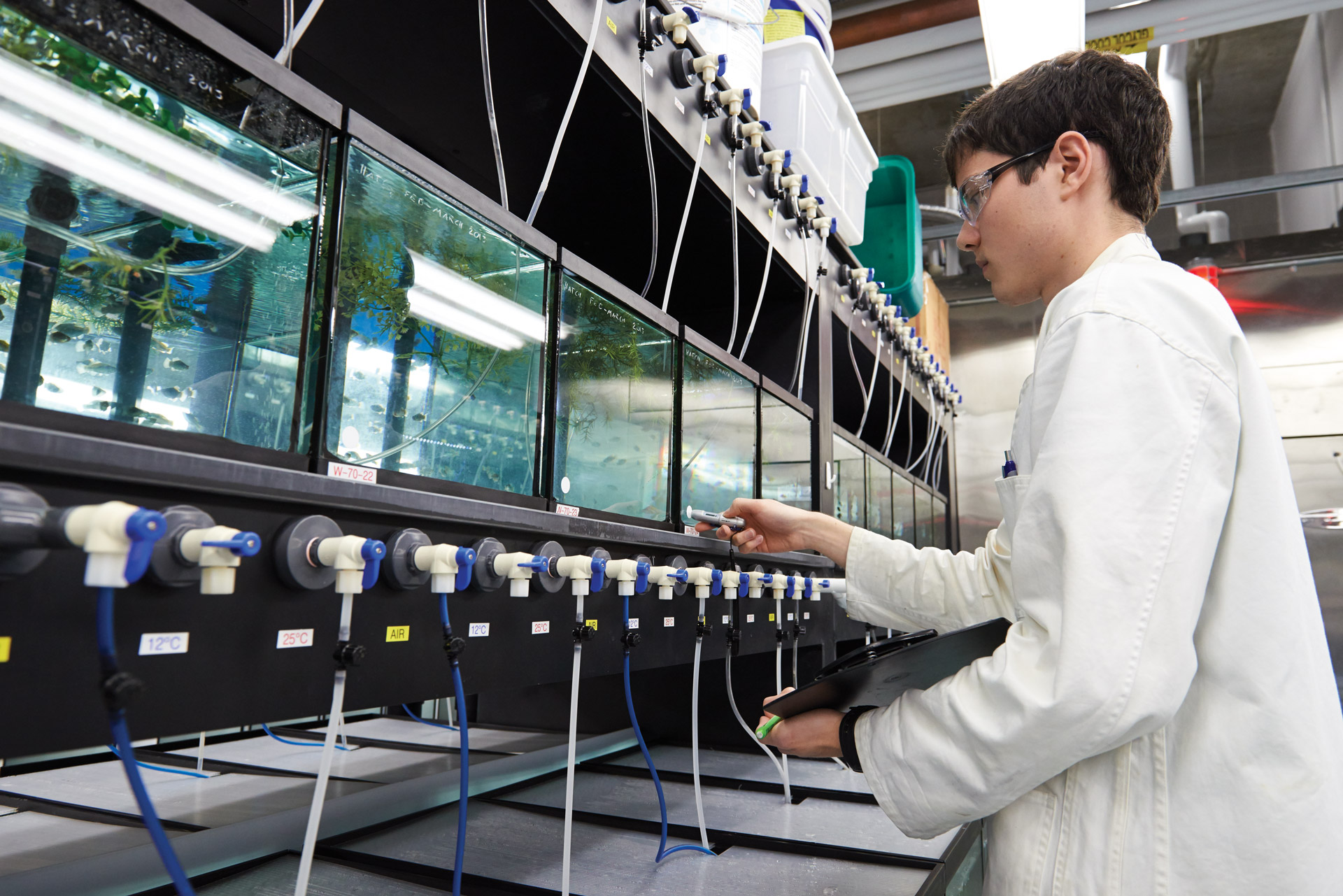Programs
Business and Society

Bachelor of Arts (Honours)
Bachelor of Arts with Co-op (Honours)
Business and Society
This interdisciplinary specialization combines core political science concepts and theories with those found in other social scientific disciplines. It critically examines the impact of business on both society and the environment and provides students with the skills to evaluate important economic processes and relations. As part of their course requirements, students will also be asked to consider and develop sustainable business practices.

Energy Engineering

Bachelor of Engineering (Honours)
Bachelor of Engineering and Management (Honours)
Bachelor of Engineering with Co-op (Honours)
Energy Engineering
The energy industry has demonstrated increased demand to include environmentally-conscious energy sources that focus on the efficient use of energy systems, as well as energy security and reliability. In this program, students will learn different aspects of energy systems including hydrogen, electrical, nuclear, renewable and energy storage.
If you're interested in applying to the Energy Engineering program without co-op, apply via the Ontario Universities' Application Centre (OUAC) using OUAC code DER.
If you're interested in applying to the Energy Engineering (Co-op) program, apply via OUAC code DCX.

Environmental Biology

Bachelor of Science (Honours)
Bachelor of Science and Management (Honours)
Bachelor of Science with Co-op (Honours)
Environmental Biology
Individuals interested in this specialization will apply directly to Environmental Biology through the Ontario Universities' Application Centre using application code DSL.
If you're interested in applying to the Environmental Biology (Co-op) specialization, apply via OUAC code DLC.
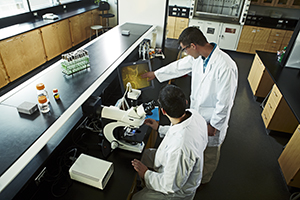
Marine Biology

Bachelor of Science (Honours)
Bachelor of Science and Management (Honours)
Bachelor of Science with Co-op (Honours)
Marine Biology
Experience a one-of-a-kind semester in Bermuda
-
Study life in the ocean from the largest animals to the smallest organisms.
-
Develop foundational knowledge and lab skills before embarking on a one-of-a-kind semester abroad at the Bermuda Institute of Ocean Sciences (BIOS) where you will learn about marine ecosystems and explore coral reefs.
-
Enhance your degree earning work experience through a cop-op placement or summer internship.
Marine Biology Specialization
Individuals interested in this specialization will apply directly to Marine Biology through the Ontario Universities' Application Centre using application code DMB.
If you're interested in applying to the Marine Biology (Co-op) specialization, apply via OUAC code DBL.
Marine Biology is a specialization within the Biological Science program. Within the marine biology specialization, students will learn about marine ecosystems and organisms, as well as have experiential learning opportunities in the marine environment via a semester abroad* at the Bermuda Institute of Ocean Sciences (BIOS).
*Differential fees as well as room and board will be set by and paid directly to BIOS. Program fees, housing and meals are approximately $20,000 USD. To learn more, visit the BIOS website.
BIOS is a world-renowned institute with financial support from government, corporate, and private investors. Located in Bermuda, BIOS is near to the Sargasso Sea, one of the world’s most diverse open-ocean ecosystems, and also home to some of the world’s most northern coral reefs, allowing researchers from around the globe an opportunity to study corals. Their facilities and equipment include the research vessel (R/V) Atlantic Explorer, a U.S. flagged UNOLS ocean class vessel, operated by BIOS, that provides faculty and staff—as well as visiting scientists and students—with well-equipped floating labs to support numerous scientific endeavors in the ocean environment.
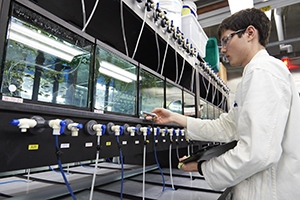
Nanophysics

Bachelor of Science (Honours)
Bachelor of Science and Management (Honours)
Bachelor of Science with Co-op (Honours)
Nanophysics
Individuals interested in this specialization will apply directly to Nanophysics through the Ontario Universities' Application Centre using application code DSG.
If you're interested in applying to the Nanophysics (Co-op) specialization, apply via OUAC code DGC.
The Nanophysics specialization within the Physics program is designed to meet the urgent demand for graduates with the knowledge and skills to address global issues of escalating energy consumption and declining resources. It emphasizes alternative and conventional energy, with a particular focus on the application of nanotechnology to developing clean energy solutions.
Students will learn the scientific principles underlying the field of nanotechnology along with the development of novel and economical means of generating and harvesting energy, while simultaneously minimizing the environmental impact.

Nuclear Engineering

Bachelor of Engineering (Honours)
Bachelor of Engineering and Management (Honours)
Bachelor of Engineering with Co-op (Honours)
Nuclear Engineering
If you're interested in applying to the Nuclear Engineering program without co-op, apply via the Ontario Universities' Application Centre (OUAC) using OUAC code DEN.
If you're interested in applying to the Nuclear Engineering (Co-op) program, apply via OUAC code DNC.
This program introduces you to all aspects of the nuclear fuel cycle, from mining to plant operation to waste management. Our curriculum includes courses in nuclear plant design, radiation protection, nuclear chemistry and materials, heat transport, steam-generation systems and nuclear physics. You will learn about the current operational fleet of reactors, and apply your growing knowledge to the future generations of reactors (e.g. supercritical‑water reactors, fast reactors and fusion reactors).
Our programs are designed in consultation with key industry representatives, and will provide you with the necessary theoretical and applied skills to meet employers' needs.
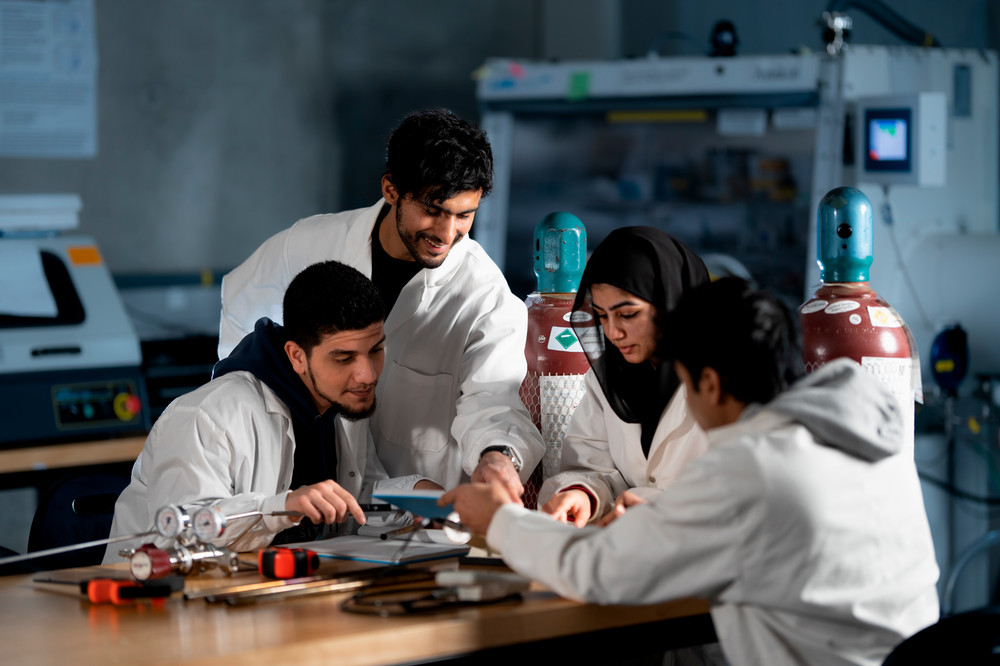
Sustainability
Bachelor of Arts and Science (Hons)
Sustainability
Experiential learning over four years, alongside skill development, prepares students to lead in various careers addressing modern sustainability challenges. Core courses provide a solid foundation, while elective paths allow specialization. A unique "Sustainability Journal" tracks student experiences for annual reviews with faculty advisors. The senior capstone project involves pan-disciplinary teams tackling real-world sustainability issues. This program aims to equip graduates with the expertise and leadership skills needed to contribute impactful solutions to global sustainability challenges.
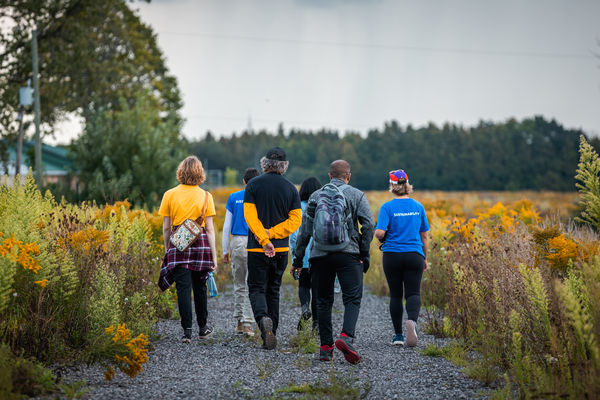
Co-op 
These programs offer a co-op option. If you’re interested, select the co-op program on your application. More at ontariotechu.ca/co-op.
Courses
Want to see the specific courses you’ll be taking in your program? Visit ontariotechu.ca/calendar.College-to-university transfer programs
Turn an Ontario college diploma (or equivalent) into a degree in as little as two years. See which programs are available to you at ontariotechu.ca/pathways.
